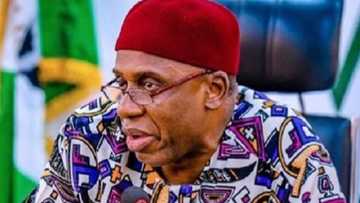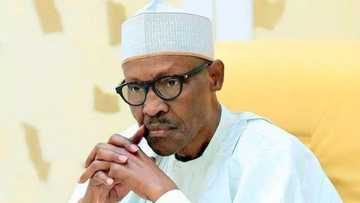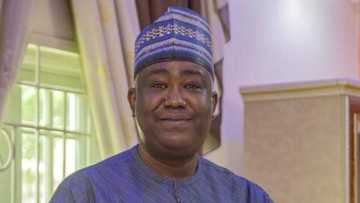2023: It’s Too Late to Sign Amendment to Electoral Act, Monitoring Group Cautions Buhari
- President Muhammadu Buhari has been warned against signing the newly amended Electoral Act 2022 into law
- The warning was given to the president by a coalition of over 20 election monitoring groups across Nigeria
- The groups said that signing the law now that parties have started conducting their primaries would cause a political crisis
PAY ATTENTION: Click “See First” under the “Following” tab to see Legit.ng News on your Facebook News Feed!
Twenty-four election monitoring groups under the aegis of the Coalition of Election Monitors and Observers (CEMO) have asked President Muhammadu Buhari not to sign the amendment to the Electoral Act 2022.
The coalition stated that it is now too late to sign the Act since political parties have already commenced activities for the 2023 elections under the provisions of the extant law.
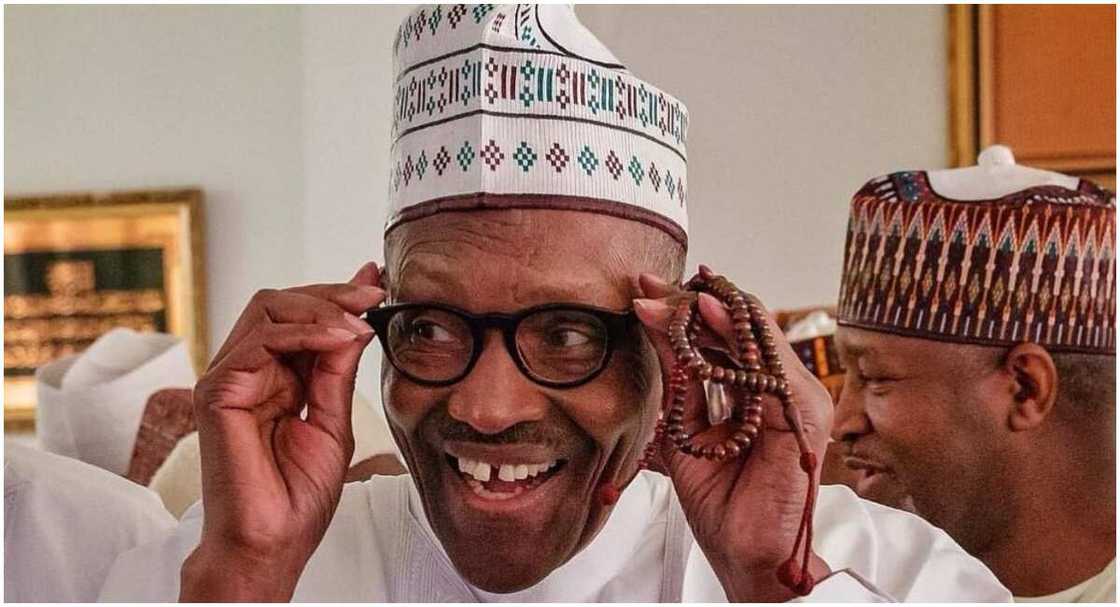
Source: Facebook
CEMO, after a crucial meeting in Abuja on Monday, May 23, submitted that though the amendment is desirable, signing the bill after most political parties have already commenced critical aspects of the electoral process under the current law is “dangerous, counter-productive.
The groups also warned that signing the Act now is capable of triggering widespread political crises and litigations that can derail the 2023 general elections.
PAY ATTENTION: Join Legit.ng Telegram channel! Never miss important updates!
Presenting the report of the election monitors to journalists, the national convener of CEMO, Idris Yabu urged President Buhari to save the nation from what he termed "a very serious political crisis by returning the Amendment Bill to the National Assembly for reprocessing for future elections."
The election monitors stressed that President Buhari ought to have signed the bill earlier to give political parties a uniform direction for the nomination of candidates for the 2023 general elections.
It added that signing the amendment at this time would amount to changing the rules in the middle of the game and disjointing the entire electoral process.
According to the election monitors:
“After a very extensive review and consultations on the issue, we submit that the amendments sought to Section 84 of the Electoral Act 2022, as desirable as they may be, have been overtaken by events leading to the 2023 general elections.
“It is instructive to note that political parties, especially the two major political parties in Nigeria have already started the electoral processes under the timelines, schedules and rules prescribed by the provisions of the extant Electoral Act 2022."
“More importantly, it must be noted that political parties have already structured their timetables, sold nomination forms, screened aspirants, conducted congresses, elected delegates, with major parties already holding primaries and candidates already emerging under the rules provided for in the current Electoral Act, 2022."
The monitors noted that in this regard, any alteration or amendment to the Electoral Act, at this moment, will amount to changing the rules in the middle of the game.
Yabu said:
“Our observation shows that political parties, aspirants and the electorate have already adjusted to the current provision of Section 84 of the Electoral Act.
"Candidates are already peacefully emerging. Any alteration at this moment has the propensity of dislocating the current political tranquillity in the country and disrupting the entire electoral process."
CEMO also called on the Independent National Electoral Commission (INEC) and the Attorney General of the Federation (AGF) to advise, the president, in this direction to avoid political crisis and ensure the smooth conduct of the 2023 general elections.
Political stakeholders had recently pressured President Buhari to assent to the amendment to current Section 84 (8) which provides that delegates to vote at the indirect primaries and national convention of political parties to elect candidates for elections shall be those democratically elected for that purpose only.
The implication is that statutory delegates, such as elected political office holders, political appointees and executive officers of political parties are not eligible to vote at primaries to nominate candidates for the 2023 general election.
The new Section 84 has in effect drastically pruned the number of delegates for party indirect primaries and reduced the financial implications of delegate elections.
Electoral Act: Why Buhari, Osinbajo, govs, others may not vote at APC presidential primaries
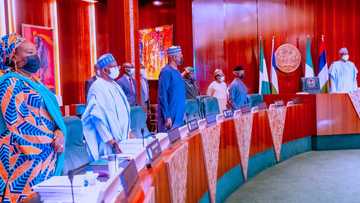
Read also
Electoral Act: Why Buhari, Osinbajo, govs, others may not vote at APC presidential primaries
President Muhammadu Buhari was expected to sign the new amendment to the Electoral Act into law on or before Sunday, May 22.
The Independent National Electoral Commission (INEC) had said that political parties must submit their delegates’ lists no later than seven days before the primaries.
However, the president's failure to sign the act into law before the deadline may disenfranchise him and other party chieftains from voting at the APC primary.
2023 primaries: APC, PDP heap pressure on INEC for extension as disparities in delegates’ list persists
Meanwhile, Legit.ng had previously reported that there were numerous calls for the INEC to extend the deadline for conducting primary elections.
It was reported that this call is coming based on the premise that most political parties, especially the ruling party APC and the main opposition (PDP) are yet to sort out the lists of their delegates ahead of the party primaries which are barely two weeks away.
APC stalwart, Gbenga Olawepo-Hashim counselled the electoral body not to pressure political parties conducting their primaries.
Source: Legit.ng

